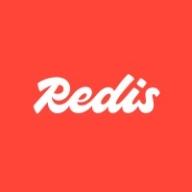

Amazon Neptune and Redis are competing database products offering distinct advantages depending on use cases. Redis appears to have the upper hand due to its cost-effectiveness and wide feature set.
Features: Amazon Neptune handles complex queries and relationships, ideal for graph-based applications. It supports a variety of graph models, including RDF, Property Graph, and supports popular query languages like SPARQL and Gremlin. Meanwhile, Redis is known for speed and scalability, offering in-memory data structures that boost performance, ideal for caching and real-time analytics. Redis supports diverse applications with flexible data structures such as strings, hashes, lists, and provides additional features like data persistence and replication.
Ease of Deployment and Customer Service: Amazon Neptune integrates seamlessly with AWS services, offering a robust cloud-based solution but requiring knowledge for setup. Redis provides flexibility with both on-premises and managed service options. Recognized for straightforward setup, it offers comprehensive customer support aiding quicker deployment compared to Neptune.
Pricing and ROI: Amazon Neptune may present higher setup costs due to its cloud-based nature and comprehensive features but offers substantial ROI for projects utilizing its graph database capabilities. Redis provides a lower entry cost with significant ROI through reduced latency and operational efficiency. Despite Neptune's potential for long-term savings in specific graph applications, Redis offers immediate financial benefits due to its simplicity and low maintenance requirements.
| Product | Market Share (%) |
|---|---|
| Amazon Neptune | 7.2% |
| Redis | 3.7% |
| Other | 89.1% |

| Company Size | Count |
|---|---|
| Small Business | 11 |
| Midsize Enterprise | 3 |
| Large Enterprise | 8 |
Amazon Neptune is a fast, reliable, fully managed graph database service that makes it easy to build and run applications that work with highly connected datasets. The core of Amazon Neptune is a purpose-built, high-performance graph database engine optimized for storing billions of relationships and querying the graph with milliseconds latency. Amazon Neptune supports popular graph models Property Graph and W3C's RDF, and their respective query languages Apache TinkerPop Gremlin and SPARQL, allowing you to easily build queries that efficiently navigate highly connected datasets. Neptune powers graph use cases such as recommendation engines, fraud detection, knowledge graphs, drug discovery, and network security.
Amazon Neptune is highly available, with read replicas, point-in-time recovery, continuous backup to Amazon S3, and replication across Availability Zones. Neptune is secure with support for HTTPS encrypted client connections and encryption at rest. Neptune is fully managed, so you no longer need to worry about database management tasks such as hardware provisioning, software patching, setup, configuration, or backups.
Redis offers high-speed, in-memory storage, renowned for real-time performance. It supports quick data retrieval and is used commonly in applications like analytics and gaming.
Renowned for real-time performance, Redis delivers high-speed in-memory storage, making it a favorite for applications needing quick data retrieval. Its diverse data structures and caching capabilities support a broad array of use cases, including analytics and gaming. Redis ensures robust scalability with master-slave replication and clustering, while its publish/subscribe pattern renders it reliable for event-driven applications. The solution integrates smoothly with existing systems, minimizing performance tuning needs. Although documentation on scalability and security could be improved, Redis remains cost-effective and stable, commonly utilized in cloud environments. Enhancing integration with cloud services like AWS and Google Cloud and refining GUI may improve usability.
What are the key features of Redis?Redis finds application across industries for tasks like caching to improve application performance and speed, minimizing database load. It enables real-time processing for session storage, push notifications, and analytics. As a messaging platform, Redis handles high traffic and supports replication and clustering for cross-platform scalability.
We monitor all Managed NoSQL Databases reviews to prevent fraudulent reviews and keep review quality high. We do not post reviews by company employees or direct competitors. We validate each review for authenticity via cross-reference with LinkedIn, and personal follow-up with the reviewer when necessary.